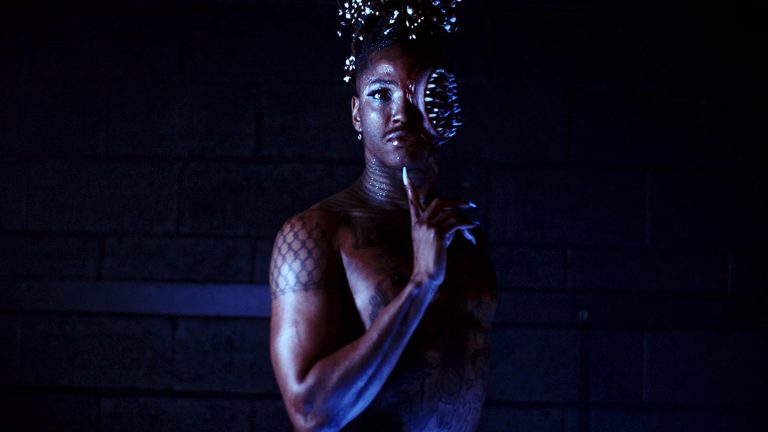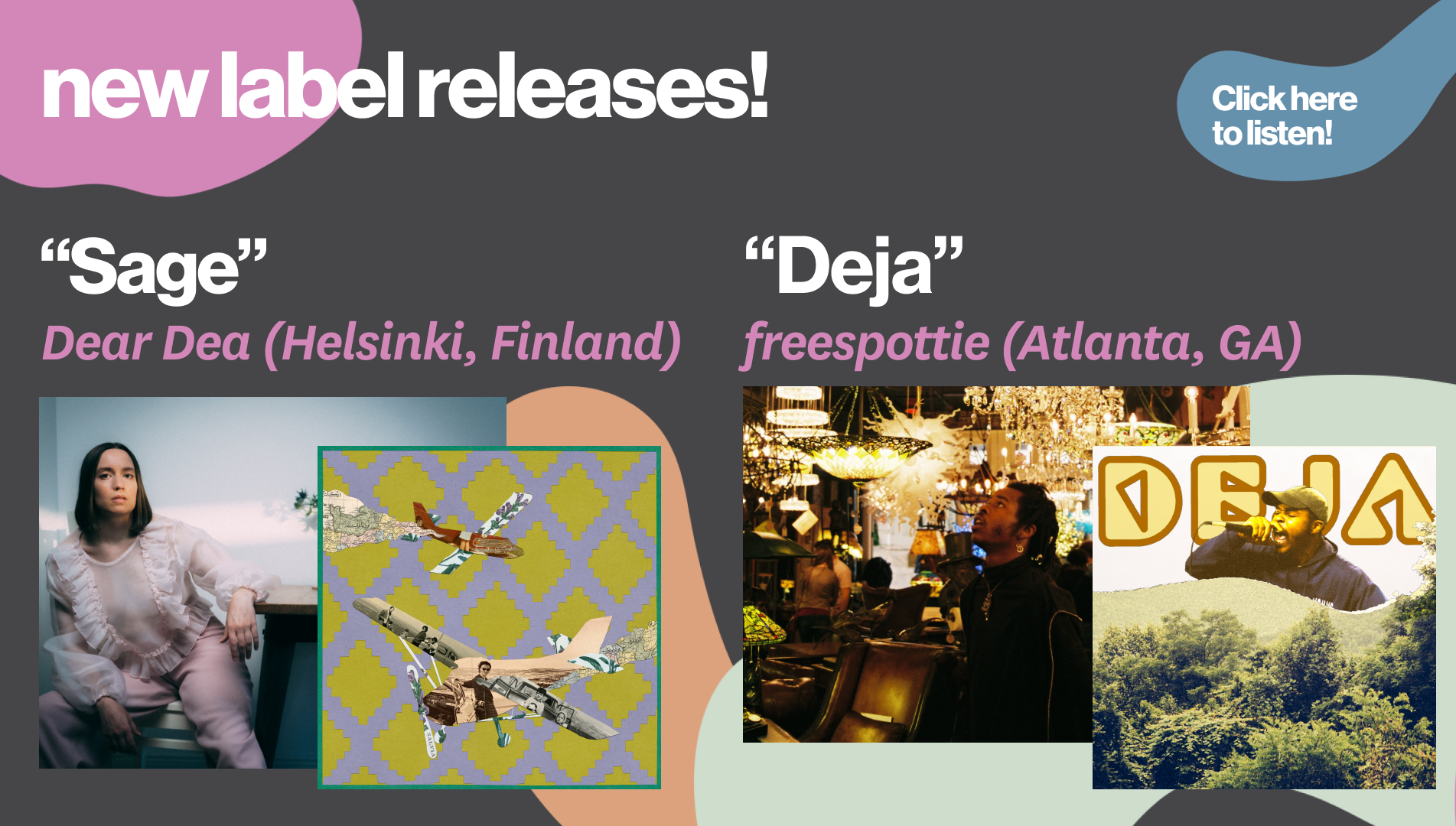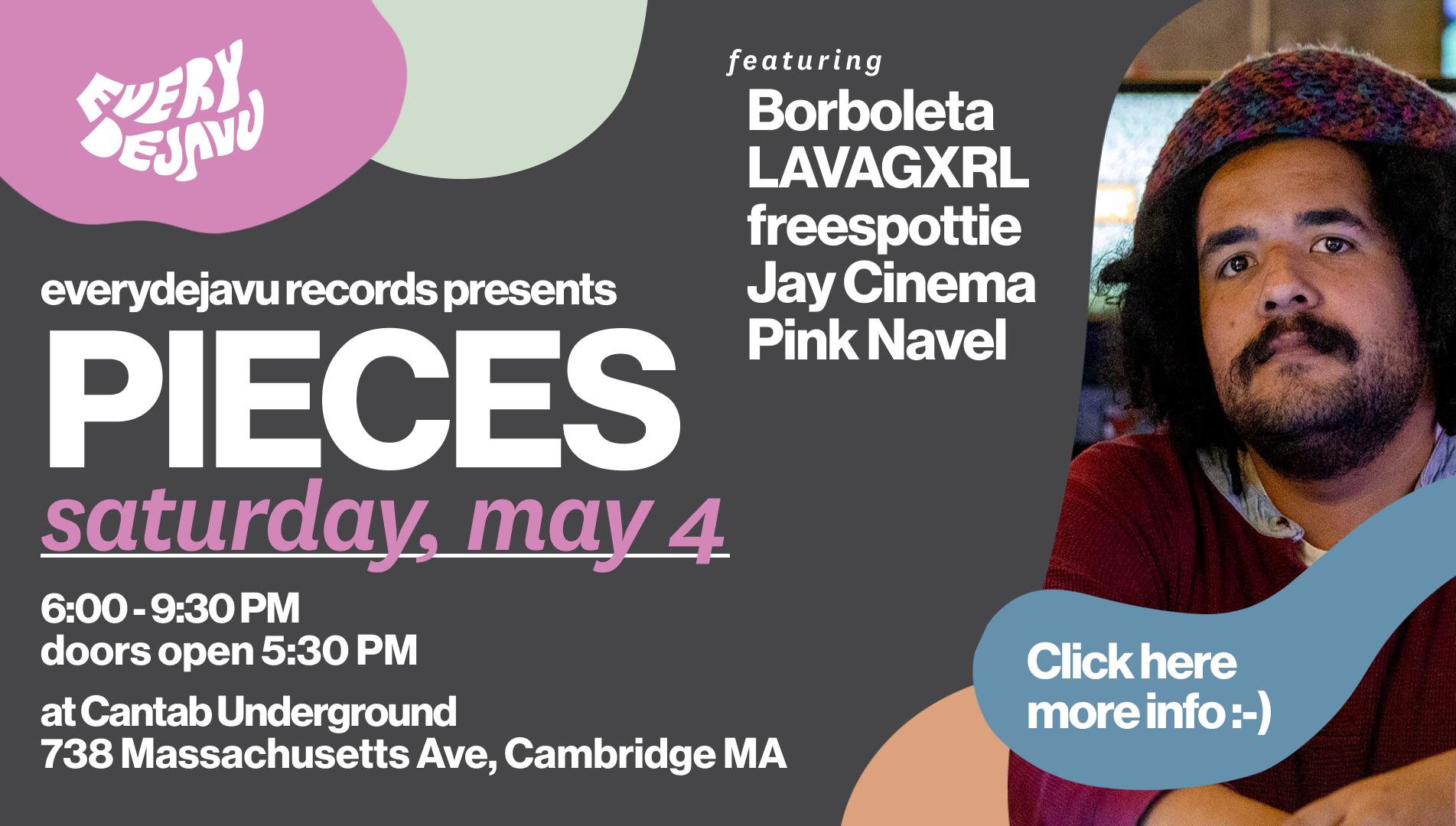A harp, a bass, a flock of trumpets, and a backline drum kit walk into a dilapidated bar in a ruined town. Heard this one before? At this level of execution, I doubt it. Let’s talk shop. Bright Lights, Dead City is the first extended-release from Bristol-based 4-piece Minor Conflict. Clocking in at 16:32, it’s a nice morsel of music—press play as your lunch alarm sounds, and you’ll feel satisfied before they even call your receipt number at Sweetgreen. Really, one might liken this EP to a salad; the level of variety that the group achieves throughout these four tracks is enviable; its dynamics plenty sufficient to maintain one’s steady attention.
Listening through Bright Lights, Dead City is like playing through your favorite iPhone 4 video game in the back of your parents’ sour-milk-smelling minivan. Using a unique yet sparse instrumentation to tap into a dynamic post-punk vein reminiscent of bands like Water From Your Eyes, Minor Conflict is able to generate impressive shifts in momentum and in environment from song to song. The group is gentle with its listeners, at least at the start; a steady white noise, a few plucks of a harp’s strings, and a growing cymbal crash all populate a well-timed acclimation period at the beginning of the first track, “White Ring Binder.” At 0:48, a resolute finger hits the “play” button, and we are thrown into motion, now familiar with the interface. A steady barrage of notes hugs the opening phrase, a sung-spoken verse: “Forming words, forming meaning, forming meanings full of words.” As soon as we can internalize the lyrics, the words fall out from under us, and our speaker shifts into an eerie upper register as a second voice takes the reins. We’re treated to a well-timed pause, a well-considered build into a full-spectrum medley. Then, a 3-note harp gliss, as if to say, “Stand clear of the closing doors,” and we are off into uncharted territory.
On “Second-Hand Time,” the EP’s second track, the speakers turn their gaze outward, two voices zealously sharing the burden of description. Here, only “broken things,” “deserted limousines,” and faces that peer out from “curling magazines” serve to draw the visitor’s attention in this dead city. As the periphery of focus expands, the instruments become discordant, and the overall sense of mania is heightened. On “Platform 2,” the only song on the EP not previously released as a single, the pendulum swings from mania into a moody noir, and our little game reaches its darkest point. As the drums casually attack a descending chromatic line, we get a surreal deposition: “Something didn’t look right on platform two.” A swell of violins suggests tragedy. A repeating line, sung together in the first person plural and hinting at escape, alludes to a conspiracy straight out of a detective flick.
Then, as if to make good on the promise of escape, the band draws its listener through another tunnel-esque build and into “Living Statue,” the highest velocity track on the EP. As if challenging the listener to draw on the skills they have learned throughout the past three levels, Minor Conflict presents them with a discordant clawing at a harp and a relentless drum rap, which drives a confession out of our two singers. A repeating “and I feel, and I feel” lends a strange catharsis, standing as a pleasant emotional breakthrough at the tail end of this fifteen-or-so-minute journey.
Bright Lights, Dead City, is a delightful post-punk EP whose sense of endless motion and action will doubtlessly endear it to any new initiative. In it, Minor Conflict has achieved a boundary-stretching sound with a strikingly non-traditional array of instruments. Through it, they demonstrate a substantial capacity for carefully considered curation, culminating in a unique, nearly cinematic array of soundscapes. Don’t be fooled—this is no coffee house album. Its polyphonic vocal lines nested in chaotic yet highly playful instrumentation are best suited for a larger, more dynamic room with space to throw yourself about. Give it a go.






